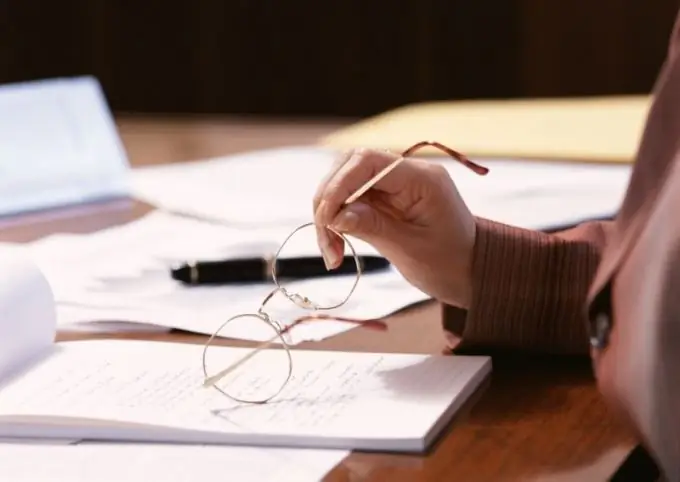An auditor is a specialist who meets the qualification requirements established by law and has a certificate for the right to carry out auditing activities. The organization and conduct of the certification of auditors is entrusted to the Ministry of Finance (general audit, audit of insurance companies, audit of stock exchanges, off-budget funds) and the Bank of Russia (bank audit).

Instructions
Step 1
You can get an auditor's certificate if you have a higher or secondary specialized economic or legal education and work experience of at least three out of the last five years as an accountant, economist, auditor, auditor, as well as a leader, a researcher of an organization or a teacher of economic disciplines.
Step 2
To obtain a certificate, you will need to pass a qualifying exam and provide the following documents: - an application for admission to a qualifying exam in the prescribed form, - a copy of a diploma certified by a notary, - a copy of a work book certified by a notary, - a document confirming the payment of the certification fee, - copy of your passport.
Step 3
If you successfully pass the exam, you will receive an auditor's certificate of the established sample. If, within two years from the moment you receive it, you do not start auditing, then it will lose its validity, which means that you will have to take the qualifying exam again.
Step 4
Please note that the certificate is issued for a period of three years with subsequent renewal. This means that you will have to constantly improve your qualifications. In our country, an auditor who has passed certification for the right to carry out audit activities specializes in one type of audit: banking, insurance organizations, stock exchanges, extra-budgetary funds, investment institutions or general. For each direction of audit activity, it is necessary to obtain an appropriate certificate.
Step 5
Upon receipt of an application from you to extend the validity of the qualification certificate, the commission has the right to schedule a re-passing of the qualification exam in two cases: - if there are reasonable claims against the auditor from the tax authorities, customers, as well as other auditors and audit firms; - with a significant change in the legislation applied to regulate audit activities.






